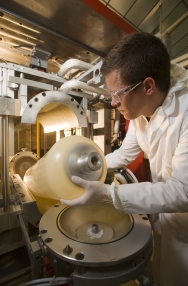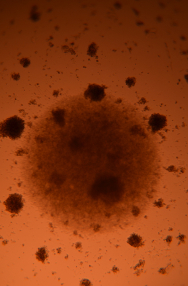| |
|
|
|

|
|
|
Running on hydrogen thanks to COPERNIC
|

|
As hydrogen cars do not emit greenhouse gases, developing them is an efficient tool for the EU to decrease its emissions. However, their high prices hamper widespread usage. To tackle this issue, the H2020 project COPERNIC contributed to drastically decreasing the cost and increasing the performance of hydrogen storage tanks for cars, helping to make hydrogen cars a more viable and competitive option.
Fuel cells as an efficient conversion technology, and hydrogen as a clean energy carrier, both have great potential - especially in the transport sector - to help fight carbon dioxide emissions (...)
|

|
|
|
|
|
|
|
|

|
|
|
Wishing BONVOYAGE to European travellers
|

|
As moving across the European Union is encouraged for persons and goods, finding the smartest, most efficient and eco-friendly route can be complicated. To meet this challenge, the European project BONVOYAGE has set up a platform optimising multimodal door-to-door transport of passengers and goods. This platform integrates travel information, planning and ticketing services, by automatically analysing non-real-time data from heterogeneous databases, real-time measured data, and above all, user profiles and feedback.
The BONVOYAGE smartphone app will provide optimised information for the transport of European passengers and goods (...)
|

|
|
|
|
|
|
|
|

|
|
|
ABIRISK for safe and effective biotherapies
|

|
Increasing numbers of medicines are molecules that are of biological origin. Unfortunately, such medicines can induce an undesirable response from the immune system. How can we measure such a response? What mechanisms are governing it? Answers to such questions have been provided by the ambitious European Project Abirisk, supported by the Innovative Medicines Initiative. This unique project, in which numerous pharmaceutical manufacturers have worked alongside academic researchers, is continuing to attract the full attention of the global scientific community.
A new class of medicines based on biological molecules such as therapeutic antibodies appeared about twenty years ago (...)
|

|
|
|
|
|
|
|
|

|
|
|
PDP4E develops methods and tools for GDPR compliance
|

|
European citizens have been granted improved protection on their personal data thanks to a recent EU regulation called the General Data Protection Regulation (GDPR). It sets legal principles and rules companies have to comply with when handling such data. To ensure the correct application of the GDPR, the European project PDP4E aims to provide systems and software engineers with innovative tools and methods to make sure their applications comply with the EU legislation and privacy related international standards.
In May-June 2018, European citizens received many e-mails telling them that data controllers respect the GDPR, the European regulation for (...) |

|
|
|
|
|
|
|
|

|
|
|
GREAT: from magnetic memory to the Internet of Things
|

|
Magnetic memory technology, mastered by the CEA and further explored as part of the European project GREAT, is particularly promising for the Internet of Things (IoT) as it should lower the cost to produce circuits for measurements, calculations and communications.
Intelligent systems based on connected objects are developing rapidly in all sectors, from space to agriculture as well as in all areas of mass consumption. By 2020, nearly 50 billion objects could be on the market IoT devices require significant autonomy and combine communications, sensors, calculating capacity and memory.
Developed in particular at the CEA, magnetic random access memory (MRAM) technology is particularly suited to the IoT as it is (...)
|

|
|
|
|
|
|
|
|
|
| |

|
|
|

|
|
The French Alternative Energies and Atomic Energy Commission (CEA) is a public research organisation working in four main areas: defence and security, low carbon energies (nuclear and renewables), technological research for industry and fundamental research. Building on its recognised expertise, the CEA takes part in implementing cooperation projects with a wide range of academic and industrial partners. With its 16,000 researchers and employees, it is a major player in European research and is expanding its international presence. In 2017, Thomson-Reuters / Clarivate identified the CEA as the most innovative public research organization in Europe. More information: www.cea.fr/english
|
|
|

|
|
|